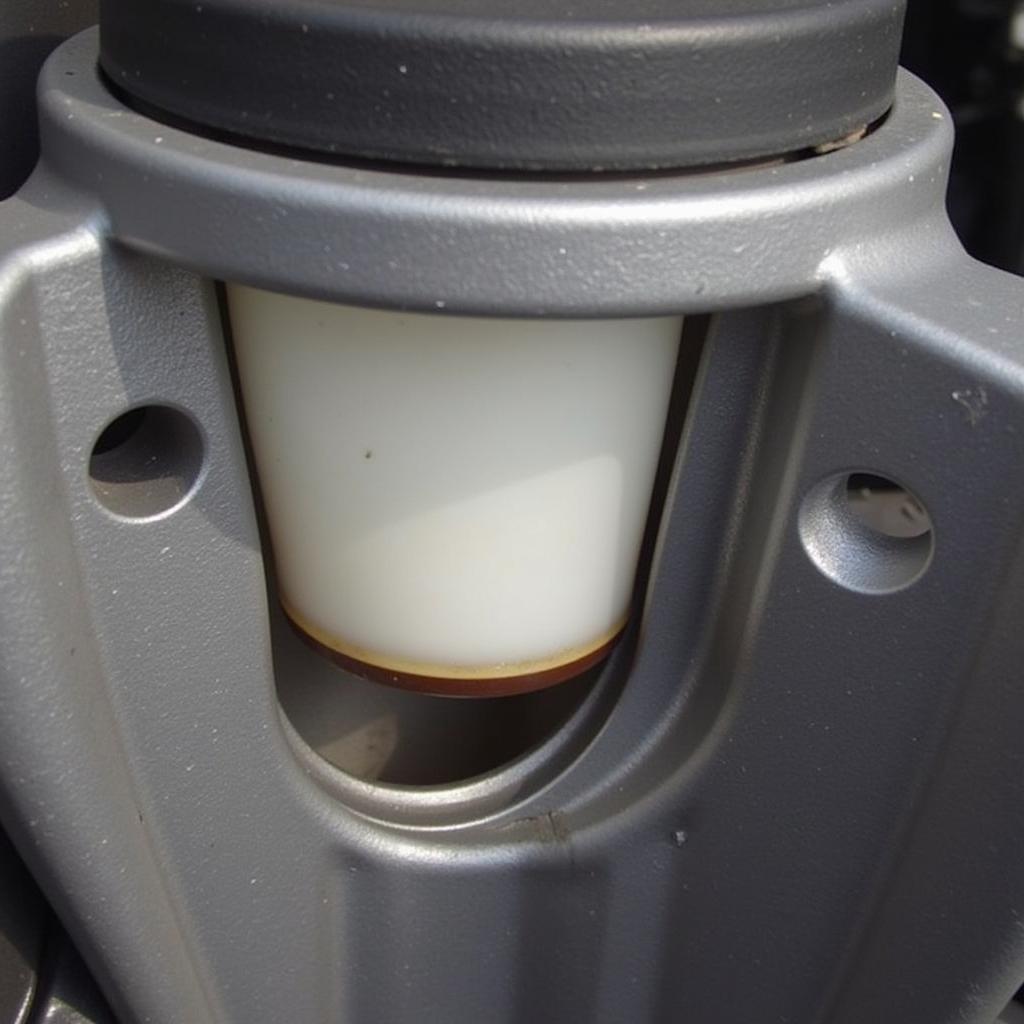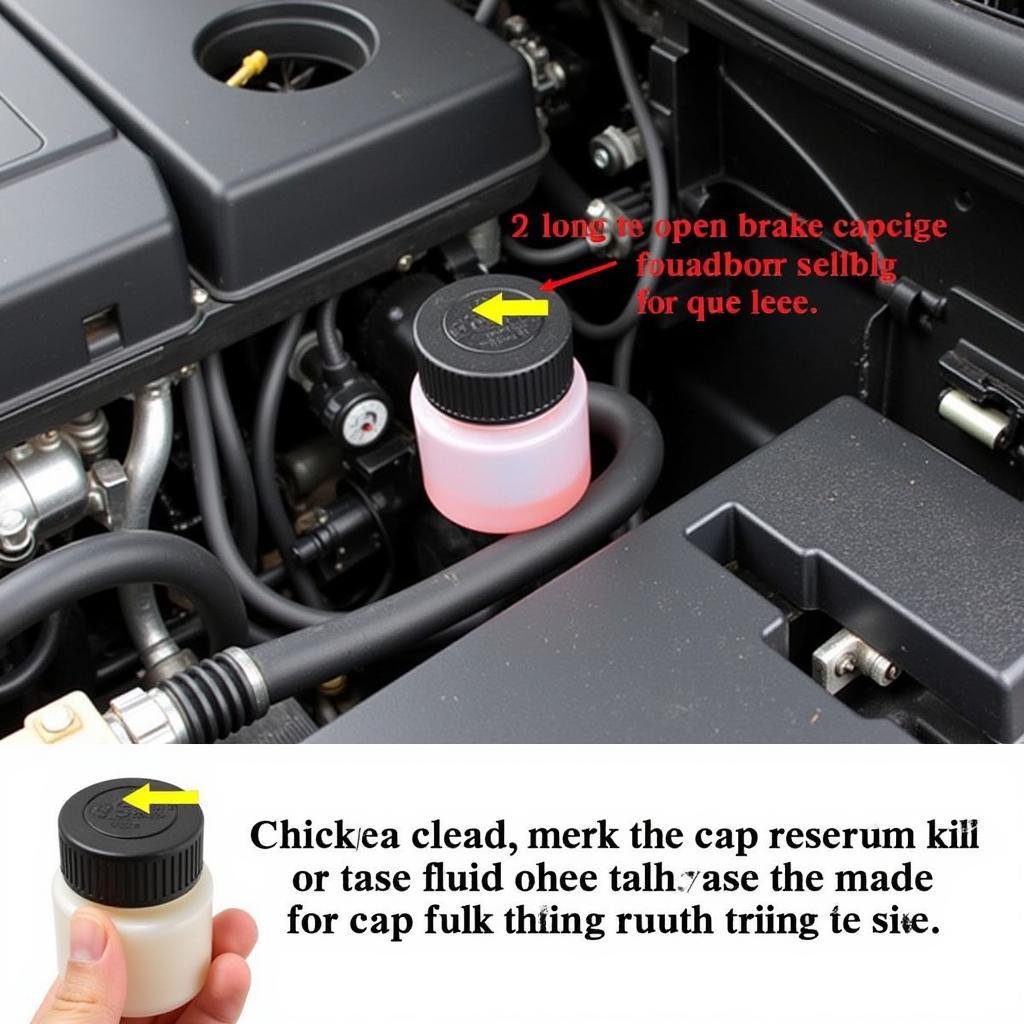A dying car battery can leave you stranded at the worst possible time. Knowing the signs your battery is dying can help you avoid this frustrating situation and potentially save you money on costly repairs. Let’s explore the common indicators of a failing car battery so you can be prepared.
Common Signs of a Dying Car Battery
Several symptoms can point towards a dying battery. Recognizing these signs can help you proactively address the issue.
Slow Engine Crank
One of the most obvious signs your battery is dying is a slow engine crank. When you turn the key, the engine struggles to turn over and takes longer than usual to start. This is often accompanied by a slow, groaning sound. This indicates the battery is struggling to provide sufficient power to the starter motor. If you notice this, it’s a good idea to have your battery checked immediately. You might also want to consider the possibility of a failing alternator, as discussed in our article on dead battery vs bad alternator.
Dim Headlights
Dim headlights, especially at idle, can be another sign of a weak battery. The battery’s reduced power output affects the brightness of your lights. If you notice your headlights dimming when you stop at a traffic light, but then brighten when you accelerate, your battery may be on its way out.
Electrical Issues
A dying battery can cause various electrical malfunctions. You might experience issues with your power windows, radio, or interior lights. These components rely on the battery’s power, and a weakened battery can disrupt their functionality. For instance, if your key fob starts acting up, it might not be the fob itself, but rather a dying battery within the key, as explained in our guide on key battery dead.
 Corroded Car Battery Terminals
Corroded Car Battery Terminals
Clicking Sound When Turning the Key
If you hear a rapid clicking sound when you turn the key, but the engine doesn’t crank, it’s a strong indication of a dead or dying battery. This clicking sound is the starter solenoid attempting to engage but lacking the necessary power from the battery.
Backfiring
A failing battery can sometimes cause the engine to backfire. The weak spark from a dying battery can lead to unburnt fuel entering the exhaust system, resulting in a loud bang or popping sound.
Low Battery Fluid Level
In traditional lead-acid batteries, the fluid level can indicate the battery’s health. If the fluid level is low, it can lead to reduced battery performance and eventual failure. Always check the fluid level and top it off with distilled water if necessary. If you find your battery won’t charge despite these efforts, see our article about what to do when a dead car battery won’t charge.
Swollen Battery Case
A swollen or bloated battery case is a serious sign of an overcharging battery and can be dangerous. This can be caused by excessive heat or a faulty charging system. If you notice a swollen battery case, replace it immediately.
How to Test Your Car Battery
You can test your car battery using a multimeter. This simple device measures the battery’s voltage. A fully charged battery should read around 12.6 volts. A reading below 12.4 volts indicates a low charge, and a reading below 12 volts indicates a dying battery. For more detailed instructions on checking battery health, see our article on checking battery drain with voltmeter.
“Regularly checking your battery’s health can save you from unexpected breakdowns and costly repairs,” says John Smith, Automotive Electrical Engineer at AutoTech Solutions.
Preventing Car Battery Issues
Regular maintenance can extend the life of your car battery. Ensure the battery terminals are clean and free of corrosion. Limit short trips, as they don’t allow the battery to fully recharge. Turn off all lights and accessories when the car is not in use. In certain vehicles, specific issues can lead to battery drain. Our article on the mustang battery drain fix delves into troubleshooting this problem in Mustangs.
“Extreme temperatures can significantly affect battery life. Protect your battery from extreme heat and cold whenever possible,” advises Sarah Jones, Senior Automotive Technician at CarCare Experts.
Conclusion
Recognizing the signs your battery is dying is crucial for preventing breakdowns and ensuring a smooth driving experience. By paying attention to these indicators and performing regular maintenance, you can keep your car battery in optimal condition and avoid the inconvenience of a dead battery.
FAQ
-
How long does a car battery typically last? Car batteries typically last between three and five years.
-
Can I jump-start a car with a completely dead battery? You can jump-start a car with a completely dead battery, but it may not hold a charge.
-
What causes a car battery to die prematurely? Several factors can cause premature battery failure, including extreme temperatures, parasitic drains, and overcharging.
-
How much does a new car battery cost? The cost of a new car battery varies depending on the type and size of the battery.
-
Can I replace a car battery myself? Yes, you can replace a car battery yourself with basic tools.
-
How do I dispose of an old car battery? Most auto parts stores accept old car batteries for recycling.
-
What should I do if my car battery keeps dying? If your car battery keeps dying, have your charging system checked by a qualified mechanic.


